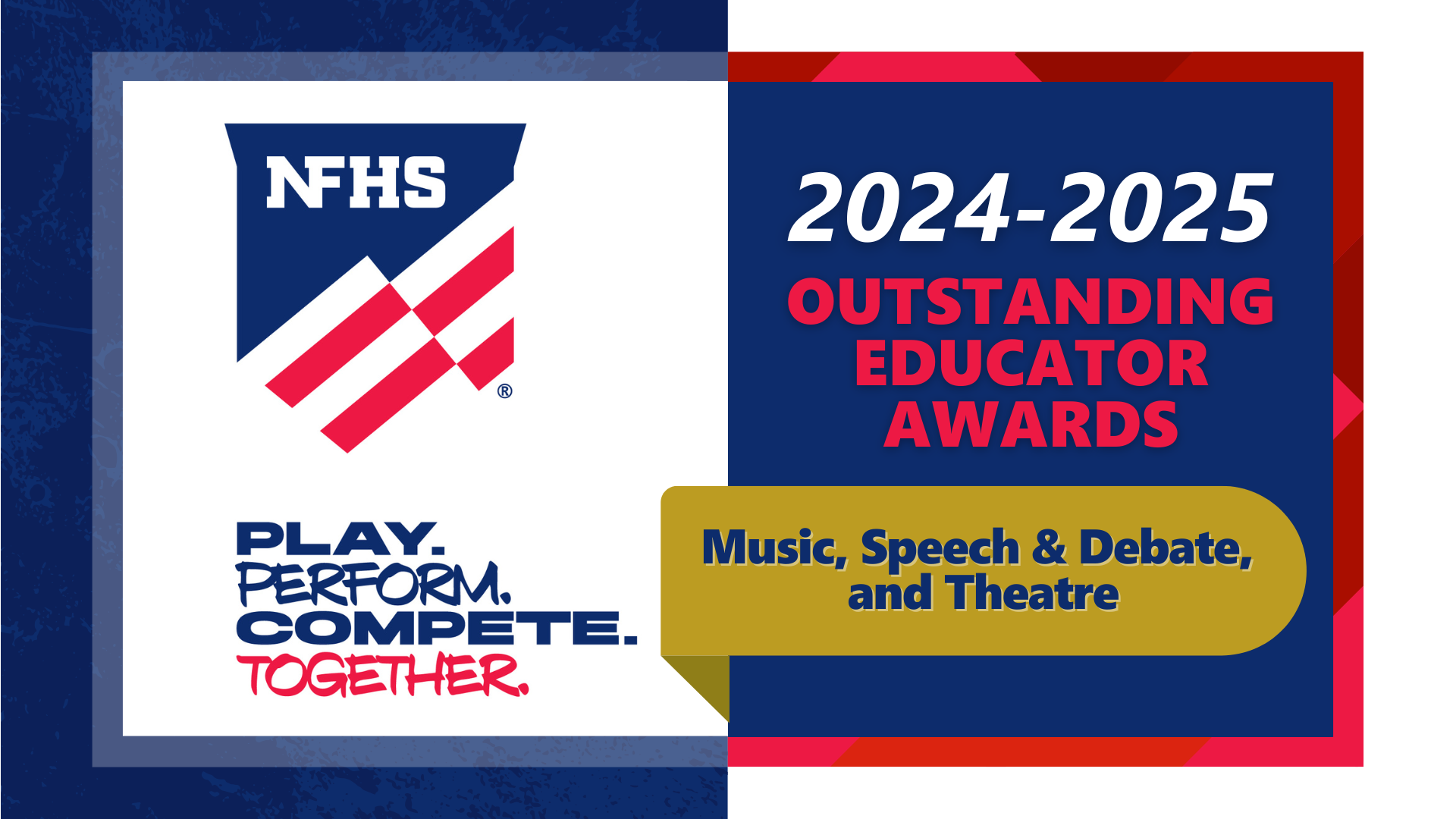2024-25 Speech, Debate, and Theatre Points of Emphasis
By NFHS on October 21, 2024 Speech Debate & Theatre Directors PrintClick below to download PowerPoint versions of the 2024 Points of Emphasis for your use in presentations.
| Version 1 (colorful) |
| Version 2 (blue) |
| Version 3 (white) |
Implicit Bias
Every person is influenced by implicit biases, which can affect our interactions with others. It is the right of every student to compete free from discrimination. It is, therefore, also the responsibility of every coach, judge and peer to acknowledge and resist their own biases. Participating in pre-tournament training can help everyone consider their own assumptions about others and make the choice to abandon them prior to competition. Students should be judged solely on their competitive merit. https://nfhslearn.com/courses/implicit-bias
Artificial Intelligence
AI has become an invaluable tool in professional and educational spaces to make certain tasks more efficient. At their best, these tools should be used to grow student skillsets (i.e., research, brainstorming and practice). The expectation is that AI may assist in, but not replace, a student’s work. It can help students learn and understand information and apply that knowledge to their original work.
Access
Speech, debate and theatre are powerful activities that have the potential to impact and transform lives. Every student has the right to access these programs, and a lack of resources should never be a hindrance to participation. Coaches and directors should work to provide equal access to electronic resources, supplies, attire, etc. and reasonably provide accommodation for those members of our community who lack access. The focus of the performing arts competition should be on commending and improving the student’s content instead of shutting down points of view or being critical of that which is outside of the student’s control.
Support
Speech, debate and theatre are a community. Though students may perform on the stage alone, they do so with a team cheering them on, coaches guiding them, and parents encouraging them all the way through. That community is our most vital resource and should be available for individual members to lean on. Coaches are encouraged to aid their colleagues and competitors; students are encouraged to build personal connections beyond the boundaries of their team; and parents shall remember that every child deserves the dignity of a respectful community.
NFHS
Most Recent Articles
- 2025 Performing Arts Education and Creative Industry Meeting Materials
- Boys Lacrosse Season Preview - 2025
- Girls Lacrosse Season Preview - 2025
- nfhs news Risk Minimization Focus of 2025-26 High School Spirit Rules Changes
- nfhs news Supporting High Schools, State Associations to Determine Eligibility, Transfer Rules






